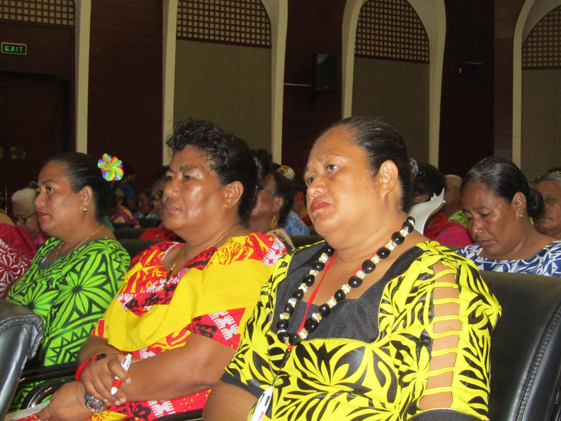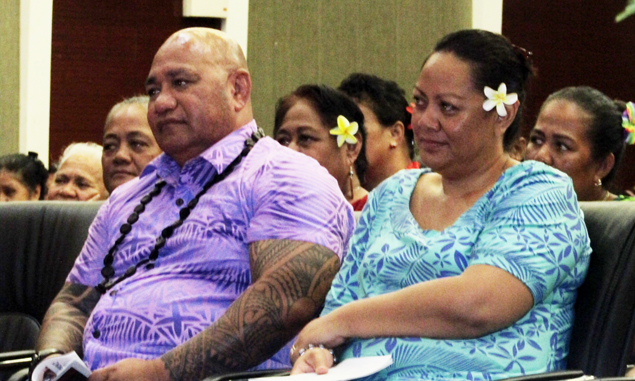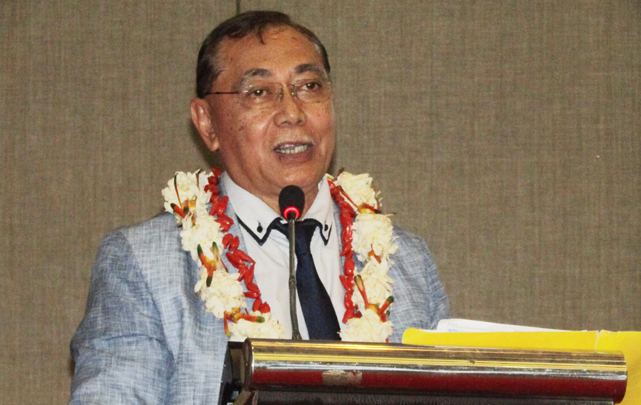

By Martha Taumata Faavae
The serious toll diseases and climate changes are taking on normal life in Samoa, has prompted Member of Parliament Salausa Dr. John Ah Ching, to signal out the teachers playing a key role in education.
MP Salausa believes there is an urgent need for teachers to encourage healthy habits in classrooms so the children are able to look after their health better.
The 2019 measles epidemic and the coronavirus pandemic are serious examples raised by the public health expert turned politician.
He made the point as the guest speaker at the annual teachers 3-day conference at the TATTE Convention Centre started last Wednesday 20 January 2020.
“I strongly believe that a healthy mindset can be developed in the children and this is where the teachers role in the classrooms is critical,” MP Salausa appealed.
Of the 80 plus people who died in the measles epidemic most were children.
The disease struck at a time when only 30 per cent of the young population were immunised against it.
Several contributing factors were blamed. Parents complacency was one of the main ones.
“Measles, whooping cough and other diseases that used to be common were hardly around any more and it may have made parents complacent.
“ Women’s village committees once worked together with nurses to administer immunisation injections in the past until it was discontinued.
“Parents were called to take responsibility for the immunisation of their own children.”
Salausa, however, noted several positives to come out of the measles epidemic with parents making sure all the required injections of the children are done.
Parents are now required to keep record of the child’s injections in a booklet to be shown before they can be enrolled in school.
The new policy is drawing large crowds of parents to the TTM Hospital to replace lost booklets so they can enrol their children for the start of the school year.
For the COVID pandemic, the highlighted concern is for urban dwellers and the threat of any food shortage.
As Associate Minister working with the villages through the Ministry of Women and Social Community, Salausa felt it was an issue that needed quick attention.
“The pandemic closed our borders and the possibility of food supply shortage from trade restrictions is what we looked at in the villages.
“The concern was in the larger urban population living on quarter acre land properties and how to survive without depending on imports.”
Innovate thinking was encouraged for families to make maximum use of the land space to grow food and learn to survive off the land.


The barter system where families exchange food they have in surplus for what they need was an example of options to look at.
Recent flooding and the damages left behind showed up the challenges of climate change and where education should come in.
“The extend of the damages and repairs to be done shows up quite clearly the value of having qualified engineers to get things fixed up again and this is where education comes in.
“We need professional skills to rebuild and restore what were damaged and this is where the teachers come in to educate engineers and all others to do the work.”
Principals and head teachers in both the public and private schools attended the conference that sets the tone and direction for education to follow in the next 12 months.
